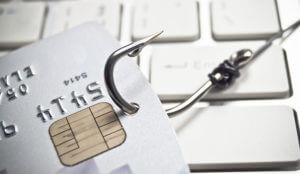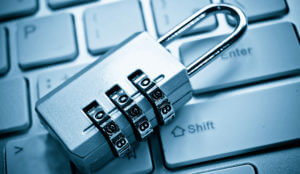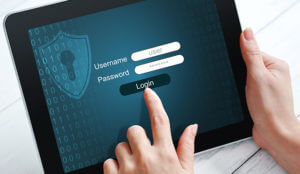Smishing texts
Fraudsters may send texts pretending to be from Bank of Ireland. They target mobile users by sending texts with links to fraudulent websites to trick you into providing your online banking details or card details. Bank of Ireland will never send you a text with a link to a site that asks you for your full 365Online PIN or one-time passcodes.
How to keep safe
Investment and Recovery agent Scam
Fraudsters are seizing the opportunity of the current low interest rate environment by offering people high interest returns on various investments, particularly in crypto-currency. Fraudsters can be very convincing, they may have created a professional and legitimate looking company website. If it’s too good to be true it probably is.
If you have been victim of investment fraud you maybe re-targeted by a ‘Recovery Agent’. These recovery agents can seem genuine and make promises that they have recovered your money, but they require an upfront administration fee to release the funds back to you.
How to keep safe
Family impersonation scams
Fraudsters are sending texts pretending to be from a family member with a lost or damaged phone, in need of money. These texts usually follow a similar format each time, opening with “Hi Mum/Hi Dad, this is my temporary/new number…” and followed by a request for help to pay for something urgently.
How to keep safe
Purchase scams and shopping online
Fraudsters are highly skilled at creating fake websites that appear genuine and persuade shoppers to share their payment information. Fake adverts can even be found on genuine sites or you may even find an advert after seeing someone you know sharing it online. Many scams are centred around vehicles like camper vans and tractors, while others create websites to look like well-known companies like clothing brands.
How to keep safe
Phishing emails
Fraudsters sometimes send emails pretending to be from your bank, credit card company or another company you trust, usually asking you to click on a link or open an attachment. The emails may seem genuine and convincing but are designed to trick you into sharing your personal information, such as your username, full PIN or credit card number. They will often make urgent threats and try to scare you into providing your details.
How to keep safe
Vishing calls
Be vigilant if you receive a phone call out of the blue from someone claiming to be from your bank, credit card company or another company you trust. They may claim that your account has been compromised and ask you for your bank card or bank account details. Bank of Ireland will never call and ask you for your full 365Online PIN or one-time passcodes that they’ve sent to you in a text. They will never ask you to download any software so they can take control of your computer or phone, or to move your money to a “safe” account.
How to keep safe
Remote access fraud
Fraudsters sometimes make “cold calls”, pretending to be from a reputable technical support or IT company. They persuade you to allow them to take control of your computer remotely over the phone so that they can fix, upgrade or protect your computer. They may ask you to log on to your online banking account or ask for bank, credit card or other personal details. Bank of Ireland will never call and ask you for your full 365Online PIN or one-time passcodes that they’ve sent to you in a text. They will never ask you to download any software so they can take control of your computer or phone, or to move your money to a “safe” account.
How to keep safe
Money mules
Offers to make quick and easy money can seem appealing but this is a way that fraudsters use people as ‘money mules’. Young people and students are often being targeted and recruited as money mules. They receive stolen money into their account, then transfer it to another account, usually overseas, and keep some of the cash for themselves as ‘payment’ or withdraw the cash and pass it on to the money mule recruiter.
How to keep safe
Using social media
The more information you post online, the more you put yourself at risk of becoming a potential target for fraudsters. For example, if a fraudster obtains your full date and place of birth, they could try to use this information to access your accounts.
How to keep safe
Card and ATM safety
Help keep your money safe by knowing how to protect your bank cards and PIN and what to look out for when using an ATM.
How to keep safe
Using public Wi-Fi
When you access public Wi-Fi, you can never be sure who has set up the network and, more importantly, you don’t know who is connected to it. Malicious users could intercept anything you are doing online including capturing your passwords and reading private emails.
How to keep safe
Protect your devices
By clicking on a fake link in an email, text, your social media account, or on a pop-up ad online, you could be allowing malware to download and infect your device. Make sure that you properly protect your mobiles, tablets, laptops or computers to help safeguard against fraud.
How to keep safe
Use strong passwords securely
Using a strong password makes it harder for fraudsters to gain access to your online accounts. A weak password can be cracked in less than five minutes.
Make sure you know the recipe for creating strong passwords and how to keep them safe.

Identity theft
Identity theft occurs when a fraudster steals your personal information and uses it to impersonate you. They can carry out fraudulent activity such as trying to access your bank accounts, opening a credit card account in your name or getting payment from a supplier.
How to keep safe
QR code scams (quishing)
Quishing is when a fraudster creates a QR ('quick response') code that directs you to a fake website. The fake website looks genuine and asks you for personal and/or financial information, it could also infect your phone with malware. The fraudster then uses the information you have provided to attempt to steal your money and/or identity.
How to keep safe